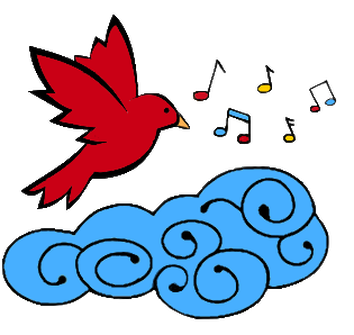|
Picture this: you have a test coming up. You go to the library or a café to study. You get there early, get your best markers out (the pastel ones), and open your book. There’s so much to do, you don’t even know where to start. So, you read and underline a bit, then get distracted, then stop working, and put off studying, ending up pulling an all-nighter before your assessment to prepare. Does this sound familiar? Studying can feel like a dreadful chore to many. But it doesn’t have to be. So, let’s look into how to study effectively. Some Things to Consider
Firstly, it’s important to understand that there’s no universal studying method. Everyone learns differently. So, if you’ve read all the advice blogs, downloaded all the apps, and tried all the methods, and they failed, please know that that’s not a reflection on you. You just need to get to your ideal learning process. This is particularly true if you struggle with executive function. Then, you should know that effective studying does not come down to just the ‘sitting down and preparing for a test’ part. There are a lot of factors that will set you up for success. This includes specific preparation work, like making a study plan, but also self-care — you need to take care of your body to be able to learn. The Preparation There are some things you can do to prepare as you’re starting your learning journey. These are smaller steps that can help in making your goal feel less daunting. Read Ahead If you have access to a lesson plan, curriculum, or book, look into what’s to come. Having a general idea of what you’re going to learn can give you some insight into what’s going to be easier or harder to understand. Are you someone who dreads verb tenses? You might need to pay special attention when those come and study a bit more intensely. Reading ahead will help you keep on top of everything. Revise as You Go I know it feels like a lot but do a quick revision of what you went over in class that day, or even that week — whatever works best for you. This can be done by going over your notes and cleaning them up, by re-listening to a recorded lesson at 1.5x speed, or by meeting up with your study buddies and explaining what you learned to them. Your goal is to cut time and stress for future you and to have the knowledge fresh in your mind before your test. Make a Study Plan Once you have an idea of what your school year will look like, it’s important to plan out your study sessions. I like to use an online calendar, mark any assessments or assignments I must do, and block out study sessions around those. This way you’re prioritizing your study time and not just sitting down when you have the time or need to work urgently. Take Care of your Body You know this but let me reiterate — eating well, exercising, getting in the sunlight, and sleeping enough all contribute to a healthy brain, ready for learning and memorizing. Not only this, but it’s also been proven that sleep helps in memory consolidation. Constant productivity at the cost of losing sleep and meals is not only costing you your health, but it’s an inefficient way of studying. So, please, be kind to yourself. The Studying Now it’s time to sit down and get to business. What can you do to ensure a solid study session? Avoid Distractions Think about what breaks your focus. Is it harder to study at home? Then go to a library or a café. Do you have the habit of getting your phone out when things get hard or boring? Keep it on airplane mode away from you or download an app blocker. If you need help staying accountable, look into joining a study group! There are many ways to block out distractions and keep you on track. Break your Goal into Smaller, Achievable Steps It can feel overwhelming to have one, big, underlined, written-in-red goal. Because of that, it’s helpful to separate your goals into doable steps. As an example, if you’re studying for a test or exam, you could break it down into steps like these:
This way of breaking down tasks can be applied to any area of your life and it helps with task paralysis. Try out Different Methods The best way to perfect your studying is by trial and error! You’ll get to know yourself and what works and doesn’t work for you. Try and figure out how long it takes you to get to a deep focus state when studying, and how many breaks help you need to keep being productive. Do you absorb knowledge better by drawing diagrams out or by explaining things out loud to a friend? Does music help you focus? If so, what kind? I dislike classical music for studying, but it works for a lot of people. Do you find you need to switch out tasks regularly to keep yourself from getting distracted? Does a distraction log work for you? All these answers vary wildly from person to person, and knowing how you work will help you not only when studying but when organizing your time in general. Final Thoughts Studying is a skill like any other. It requires time and effort to develop, and still, there will be days when you just can’t focus. Nevertheless, we hope this guide was helpful to you, and that you’ll approach your next study session with a sense of curiosity instead of dread. For personalized study tips and guidance, feel free to reach out for a free consultation!
0 Comments
Leave a Reply. |
AuthorWrite something about yourself. No need to be fancy, just an overview. Archives
June 2024
Categories
All
|
Music & Language Learning Center |
Music Classes |
Language Classes |
MUSIC AND LANGUAGE LEARNING CENTER 2024



 RSS Feed
RSS Feed

